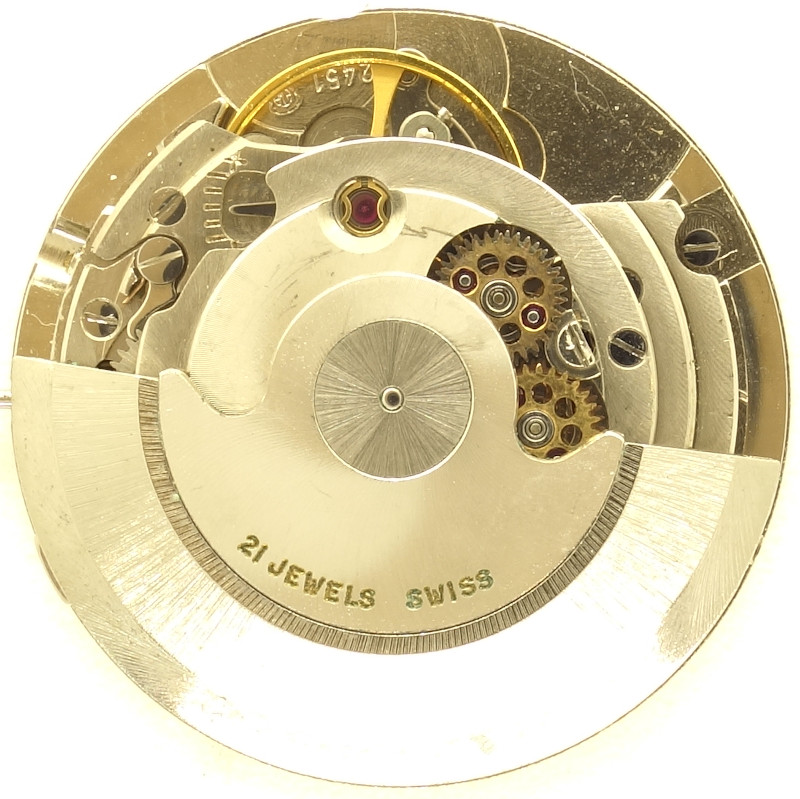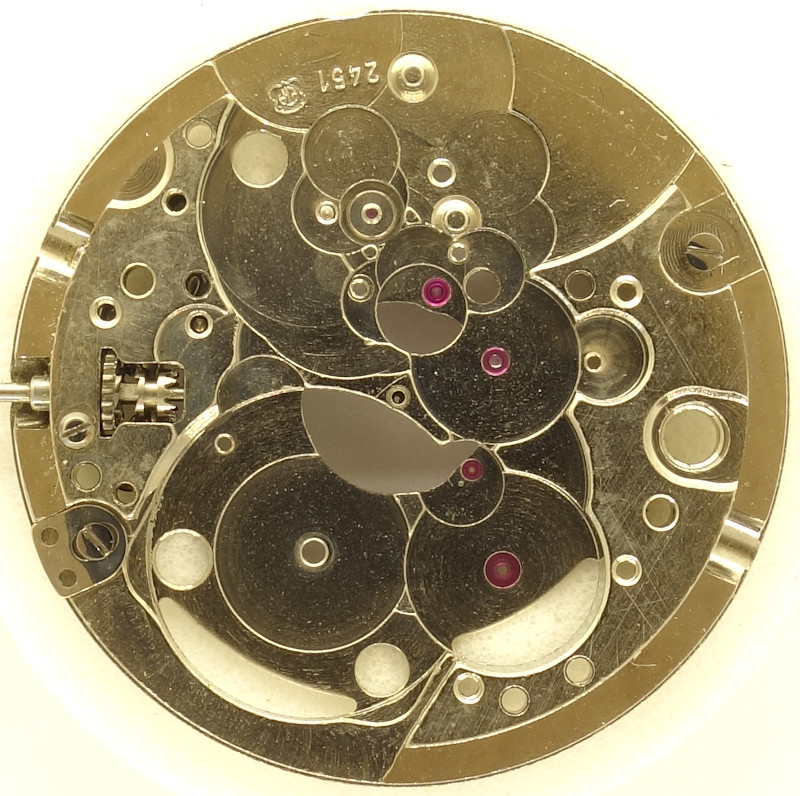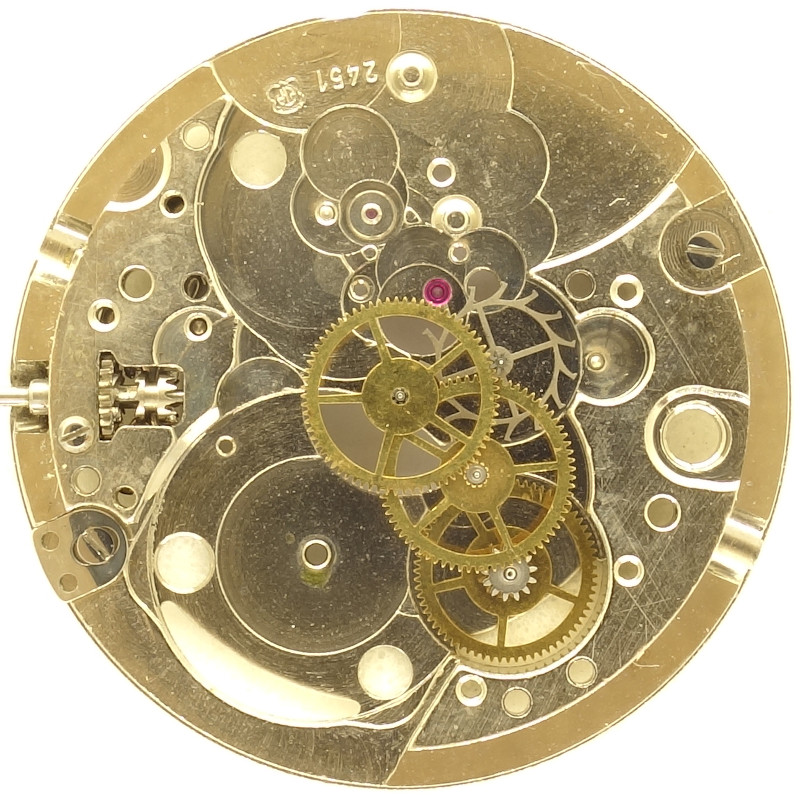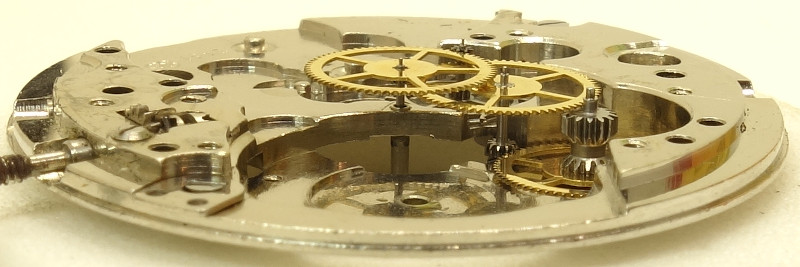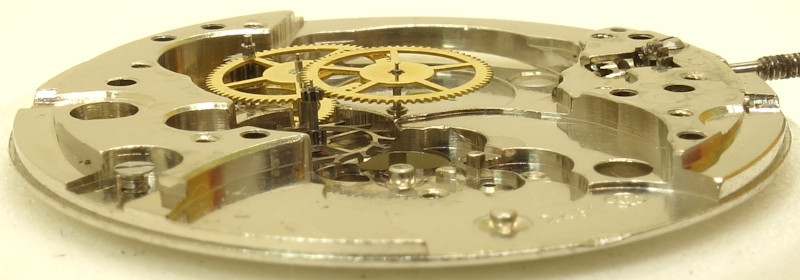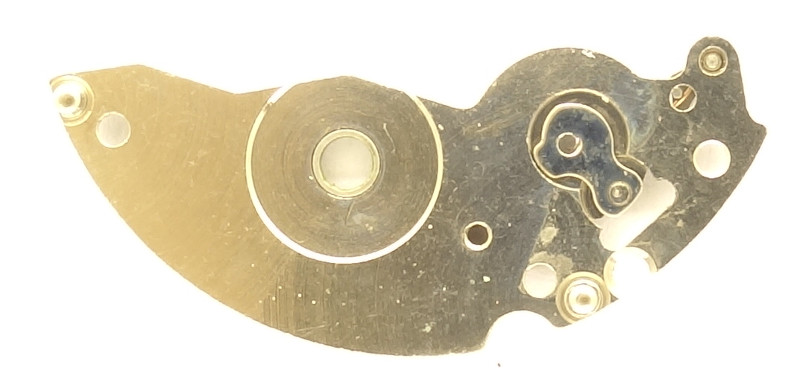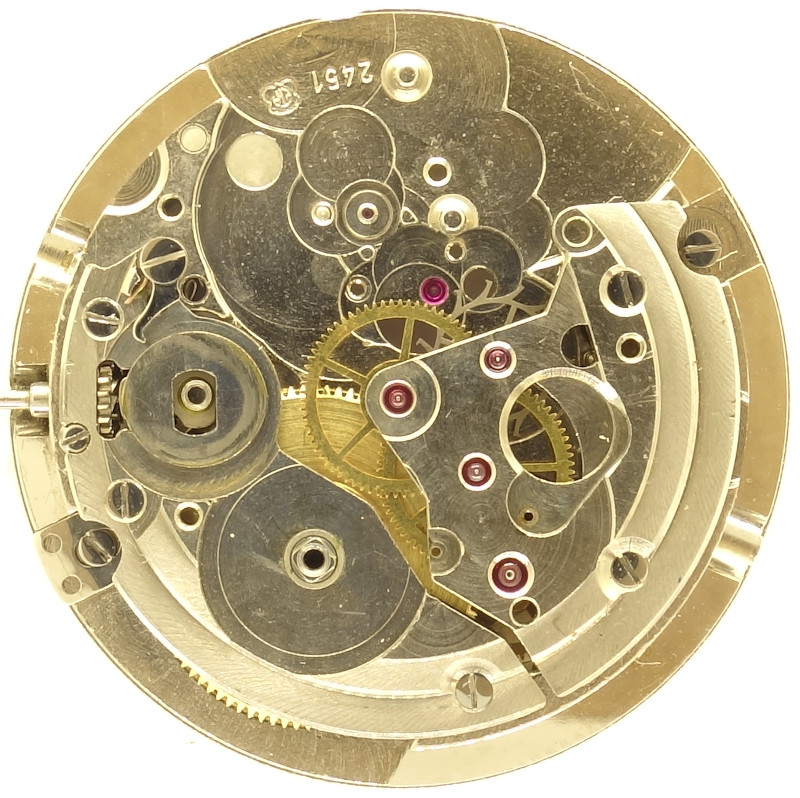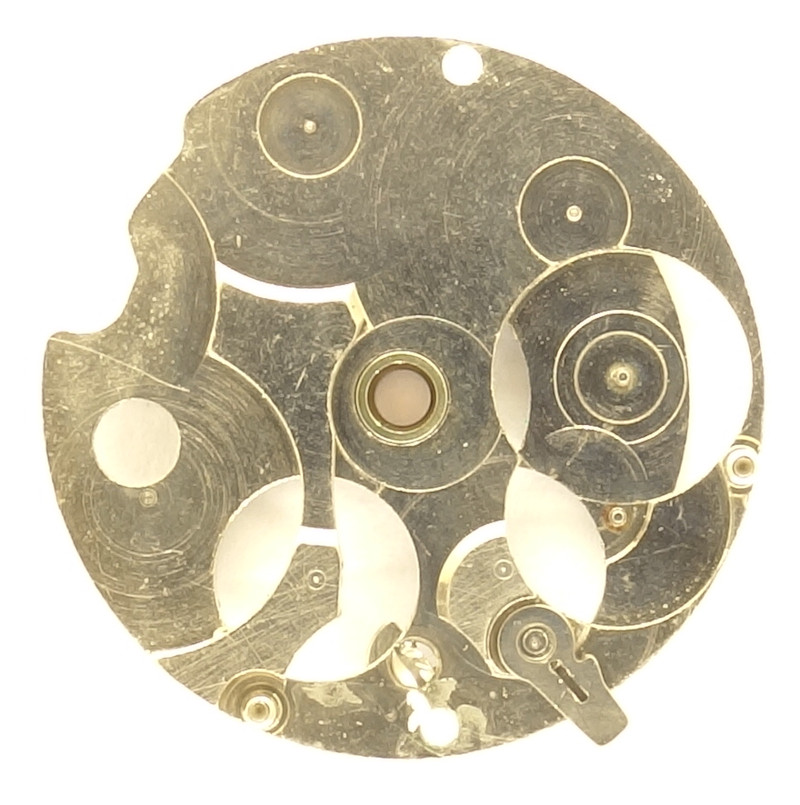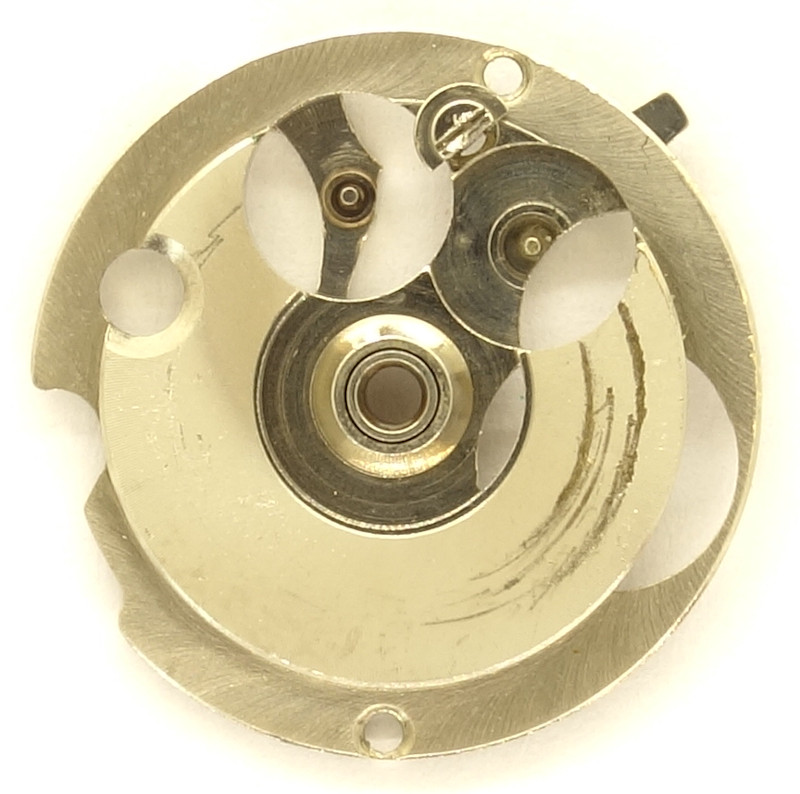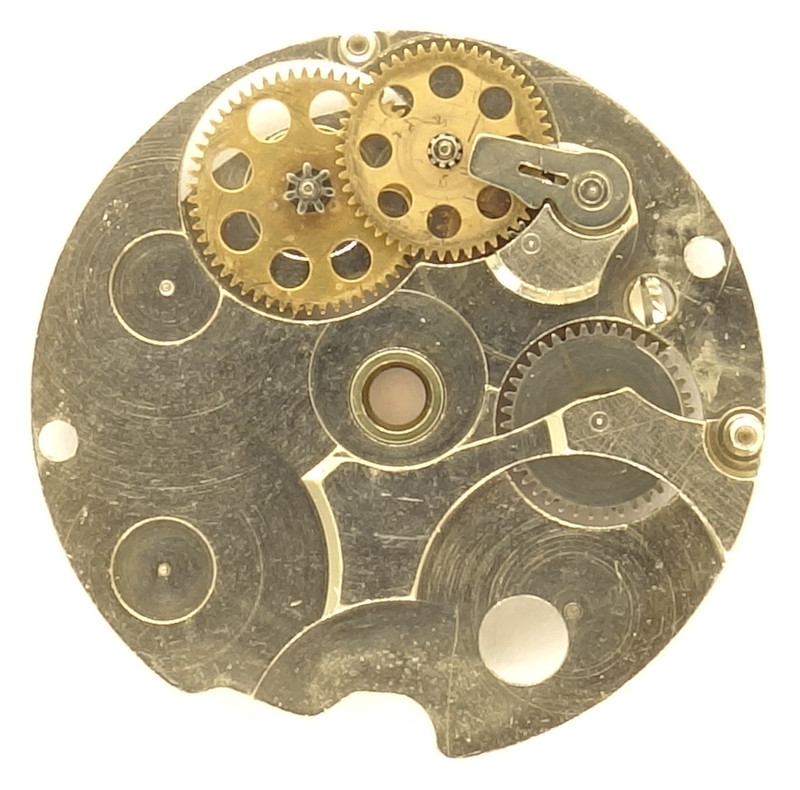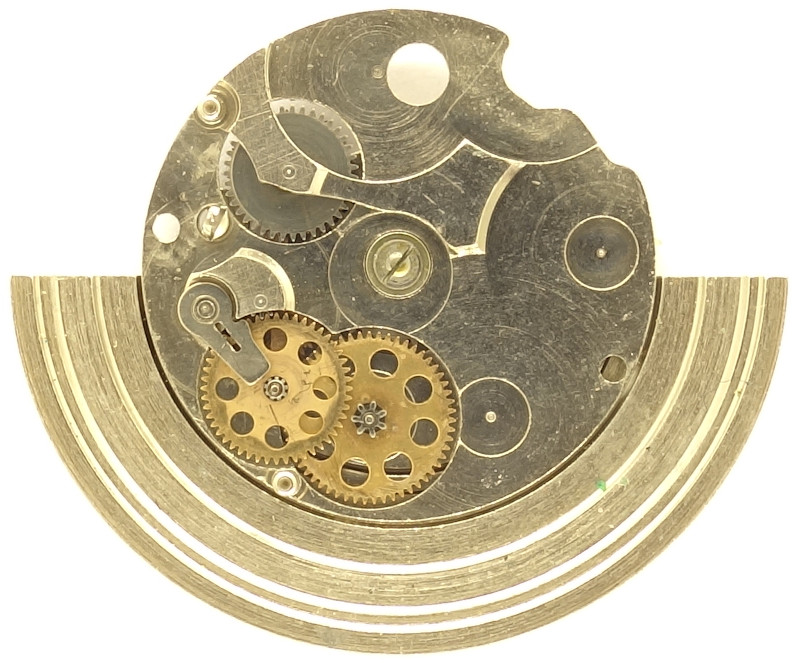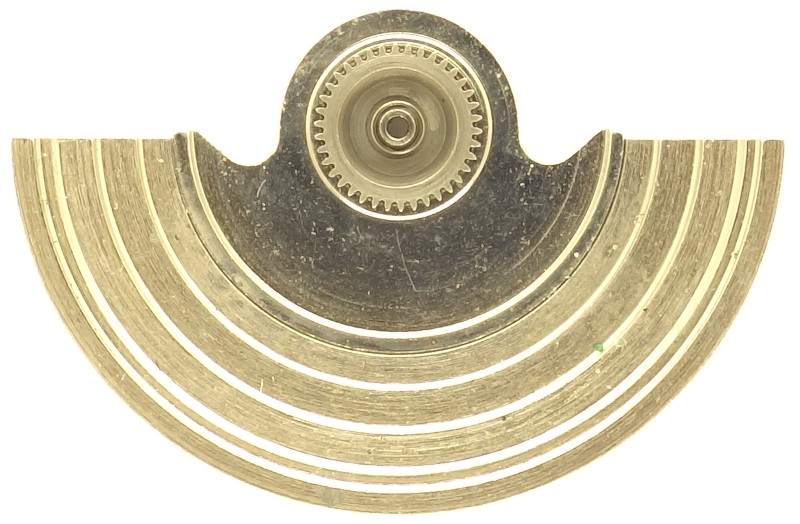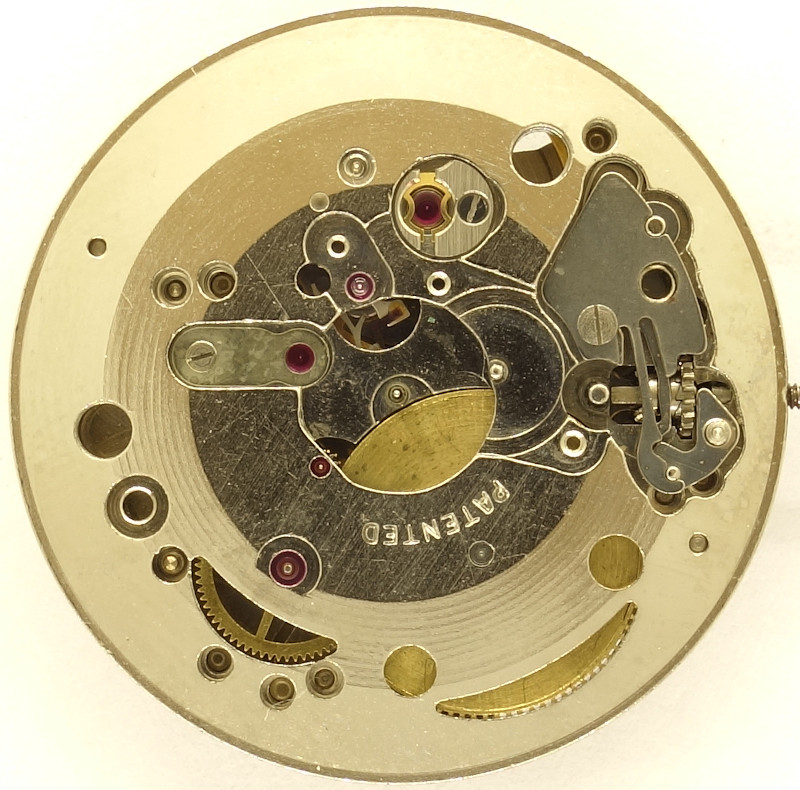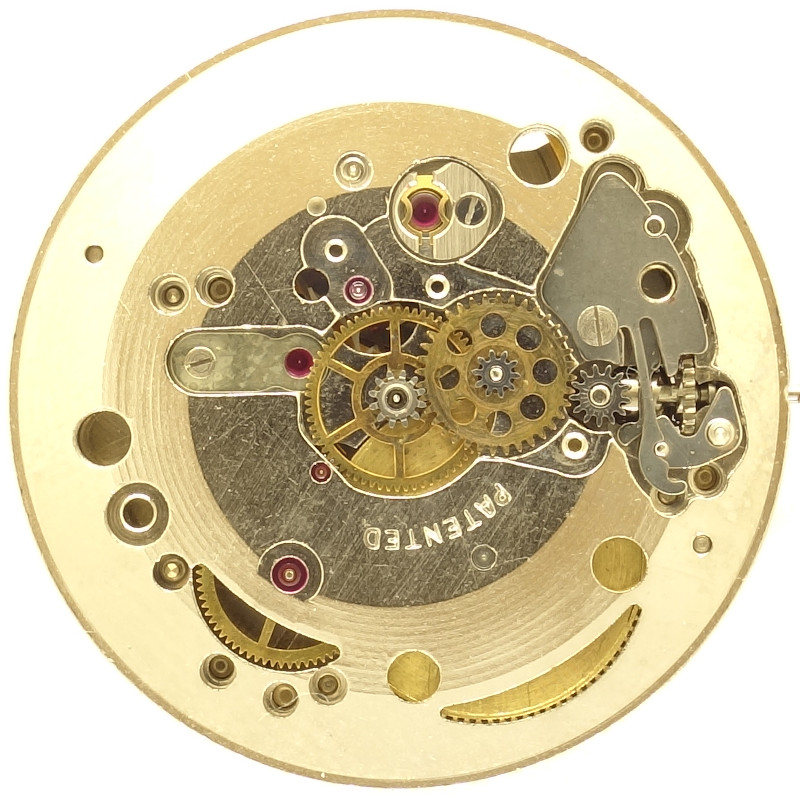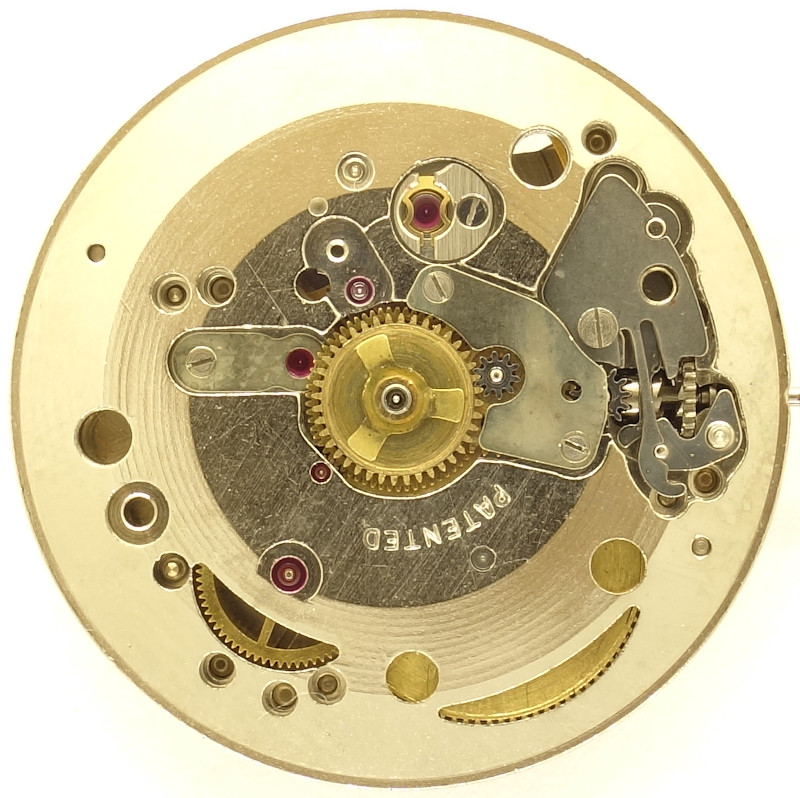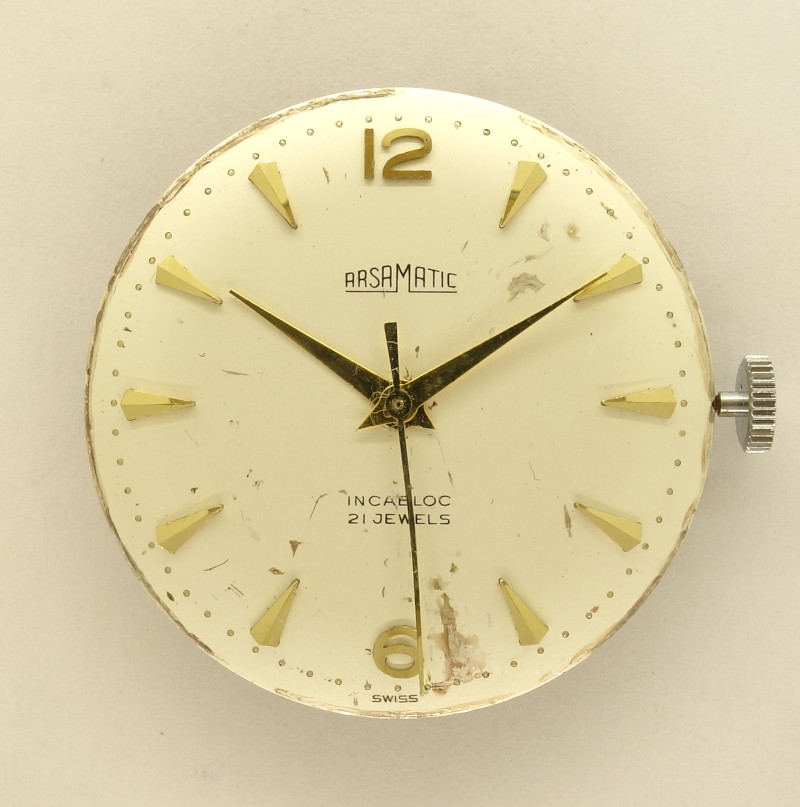Description
With the caliber series 2390, launched in 1954, the age of the modern ETA automatic started, of which the ETA 2451 shown here, was a part.
The construction principle with indirectly driven hands and without a center minute wheel, is typical for it and still used today, e.g. in the ETA 2824. The modern versions only differ in details, but are identical, construction-wise.
The base plate of the 11 1/2 ligne movement shows, that except for the center seconds wheel on the dial side and the mainspring barrel bearing, all bearings contain rubies, and you can also see on the recesses, that the balance wheel and the mainspring barrel are very large dimensioned.
The gear train construction was revolutionary for the time being: The mainspring barrel drives the second wheel with its strong arbour, followed by third wheel, center seconds wheel and escape wheel.
This construction builds pretty flat although it has got a center seconds indication.
Of course a swiss pallet lever escapement is used. On the (late) specimen shown here, it is already controlled by a screw-less Glucydur balance, older versions use a balance with screws.
The balance beats slowly with 18000 A/h and is beared between two Incabloc shock protections.
The effective length of the hairspring can be regulated with a long regulator arm; on the version shown here, the hairspring stud is already moveable.
The bearing of the crown wheel is moveable, you can see on the lower side of the barrel bridge the costly moveable gear. Since the crown wheel is blocked by the click spring, it is not clear, for what reason it is moveable.
Successors of the 2451, e.g. the ETA 2824, apply the red pencil and use instead of the moveable crown wheel bearing an ellipse-shaped bearing, on which the hollow cronwheel can slide, but for the cost of wear and tear.
At position 6 o’clock, you can see the bearing of the last transmission wheel of the selfwinding module. This module is attached onto the movement can can be removed for service purposes as a whole.
On the older ETA selfwinding movements, the changer wheels are still axle beared, so on the selfwinding module, no bearing jewels are used.
As you can see, the module is attached with only two screws onto the movement, and at position 10 o’clock, there’s a hole for the shock protection, since it would otherwise cover the balance wheel cock.
The oscillating weight is beared on a thick, hollow and conical axle and has got almost no height play.
It engages with both reverser wheels, whose lower gears engage with each other. Depending of the winding direction of the oscillating weight, one of the two gears transmisses the power from its upper gear (which engages with the rotor) to the lower gear, while the other gear is decoupled.
The lower right gear drives a transmission gear, followed by a second transmission gear, which finally engages with the ratchet wheel.
This construction principle is valid until today, the only difference is, that today, a ball-beared oscillating weight is used.
This weight is decoupled only with the help of the pawl changer wheels, one of the weaknesses of this construction, because if the oil in these wheels becomes old, they don’t spin free easily and still engage the oscillating weight, when the movement is wound manually. You’ve certainly seen it spinning with an extremely high speed…
The ETA 2451 uses an axle-beared oscillating weight, which winds the movement in both directions
It’s typical for a modern ETA movement, that the hands are driven from the dial side only, by the pinion of the third wheel, here visible at position 8 o’clock quite near the center.
This “System ETA”, developed by Heinrich Stamm, was of course patented unter the swiss patent number CH297900A.
The minute wheel, which is driven on the dial side by the third wheel pinion has got a slip cluth for the cannon pinion, which carries the minute hand and drives the exchange wheel, which drives the central hour pinion.
The size of the mainspring barrel is easy to see. To reduce the height, the outer side of the base plate is slanted and there’s are cutouts for mainspring barrel and second wheel.
How advanced the modern ETA automatic was in the past can be
seen on the fact that a modern
ETA 2824-2
still uses the same construction and only differes in
Technical data
| Manufacturer: | ETA |
| Caliber: | 2451 |
| Caliber base: | ETA 2390 |
| Size: | 11 1/2''' (measured: 25,6mm) |
| Height: | 5,2mm |
| A/h: | 18000 |
| lift angle: | 52° |
| Number of jewels: | 21 |
| Escapement: | Pallet lever |
| Balance types: | Glucydur anular balance (three legs) |
| Shock protection(s): | Incabloc |
| Balance bearing / direction hairspring: | Clockwise |
| Moveable stud: | yes |
| Adjust mechanism: | Long regulator arm |
| Construction: |
|
| Construction type: | solid construction |
| Winding mechanism: | yoke winding system |
| Setting lever spring: | 3 holes |
| Features: |
|
| Production period: | 1956 - 1974 |
| References: | Ebauches: II 55.3 Flume: 1962 100 |
| Mentioning in literature (years): | 1963 - 1971 |
| Data sheet: | 1965 |
| Inventory number: | 20058 |
